Seven decades take center stage
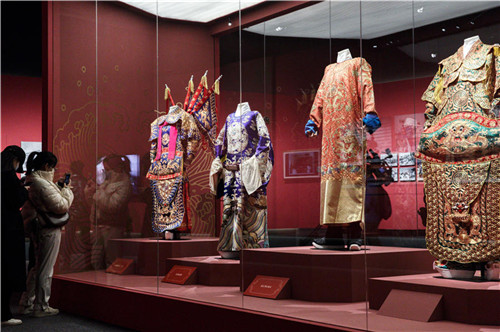
Costumes, ornaments and stage props of traditional Chinese operas are on display at the National Museum of China in Beijing. The ongoing exhibition is part of the National Academy of Chinese Theater Arts'70th-anniversary celebrations. [Photo by Jiang Dong/China Daily]
An exhibition highlights the National Academy of Chinese Theater Arts' role in promoting Chinese operas, Cheng Yuezhu reports.
The National Academy of Chinese Theater Arts is celebrating its 70th anniversary with a new exhibition at the National Museum of China in Beijing.
Upon entering the exhibition hall, visitors are "transported" on a seven-decade journey in which Chinese operas are highlighted. The history of the school itself is a record of New China's traditional-art education since its founding in 1949.
"The development of the national academy has always been closely linked to the fortunes of the country and the people, and goes hand in hand with the development of society," the academy's Party secretary Gong Yu said at the exhibition's opening on Dec 26.
The academy was established in January 1950 as the first-ever national institution of Chinese-opera education. Tian Han, an eminent playwright who wrote the lyrics of China's national anthem, was appointed as the principal.
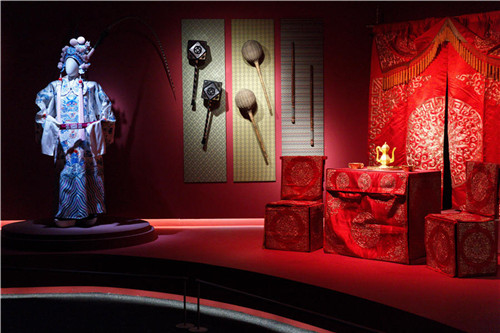
Costumes, ornaments and stage props of traditional Chinese operas are on display at the National Museum of China in Beijing. The ongoing exhibition is part of the National Academy of Chinese Theater Arts'70th-anniversary celebrations. [Photo by Jiang Dong/China Daily]
Curator Zhuge Yingliang says the exhibition comprises four sections-mission, innovation, education and achievement-and outlines the school's history in correspondence with the country's development through artifacts, texts and multimedia technology.
Visitors can learn about the school's history from photos and manuscripts, discover the ins and outs of performances through exquisite costumes and ornaments, and see innovative stage designs by contemporary students of traditional art forms.
The exhibition, which runs until February, is the grand finale of the academy's 70th-anniversary celebrations, featuring a series of events over the last four months, including 17 theater performances and concerts, 140 video recordings of classic stage performances and documentaries, and public lectures and seminars.
In 2020, four generations of teachers and students, ranging from senior artists and leaders of the institution to young students from the middle school affiliated with the academy, jointly wrote a letter to President Xi Jinping about the work the academy has done in Chinese-opera education.
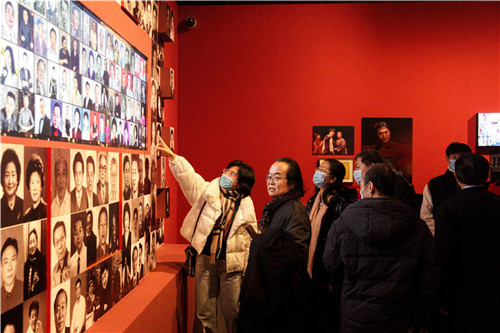
Teachers from the National Academy of Chinese Theater Arts look at the old photos on display at the Beijing exhibition. [Photo by Jiang Dong/China Daily]
In his reply on Oct 23, Xi expressed his hope that the 70th anniversary will be a new starting point for the academy in implementing its task in art education, consolidating its original aspirations in pursuing art through serving the people and making greater contributions to inheriting traditional culture.
Gong says the reply letter reflects an emphasis on opera education and care for teachers and students, affirms the school's 70 years of work and extends an expectation for its future development.
Fu Jin, a professor at the academy, says that while senior artists have made great contributions to traditional art forms, their legacies have to be passed down to younger generations.
"The flourishing of Chinese operas relies on talent from different fields, such as directing, music, literature and stage arts. The reason our school has become a representative institution in the performing-arts sector is because we offer comprehensive education," Fu says.
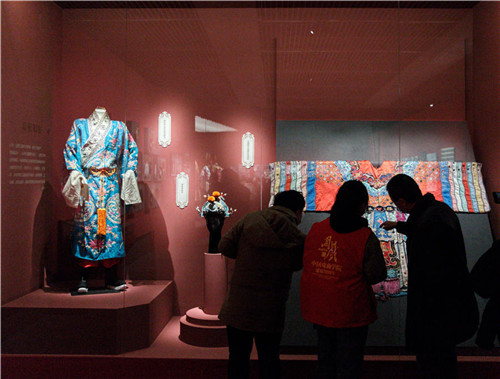
[Photo by Jiang Dong/China Daily]
In addition to higher education, the academy also pays attention to its affiliated middle school, which sets the foundation for young art students, who aspire to learn traditional art forms professionally.
Chen Zhuo was the middle school's representative for the letter written to Xi.
The 19-year-old, who has been studying Peking Opera for over four years, says she first encountered the traditional art form at age 6, when teachers from the affiliated middle school visited her primary school to give lessons.
"I was interested in art while growing up," Chen says.
"I gradually discovered the profundity and sublimity of Peking Opera."
She says she aspires to enter the academy after middle school and perform Peking Opera professionally on the big stage.
"I hope to use my passion and strength to promote this treasured art form and make it known among more people."
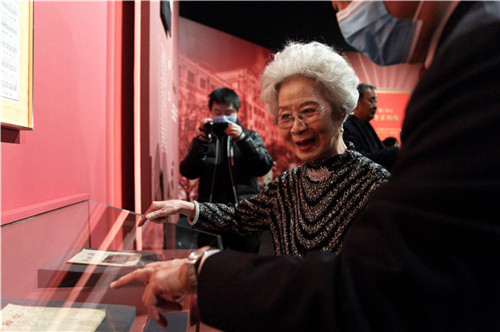
[Photo by Jiang Dong/China Daily]
Fu says the academy has been exerting its influence on traditional Chinese opera styles, providing pedagogical guidance to other schools and cultivating talented people who are now taking leading roles in troupes.
The academy offers courses on opera styles from 17 provinces. Every year, it also provides advanced training courses for practitioners of regional operas, particularly styles included on the country's intangible cultural heritage list.
These listed operas are an important component of traditional Chinese performing arts, and the advanced-training course pays special attention to the future development of such styles, says the academy's vice-dean Song Fei.
"In addition to developing students' professional skills, we also provide guidance on the inheritance and dissemination of Chinese operas and provide insights on how they can develop amid the ever-changing cultural industry," she says.
Li Rui, a veteran artist with Jinju Opera Company in Datong, Shanxi province, has worked in the troupe for 27 years. She came to Beijing in November for an advanced-training course specifically designed for "inheritors" of Chinese operas.
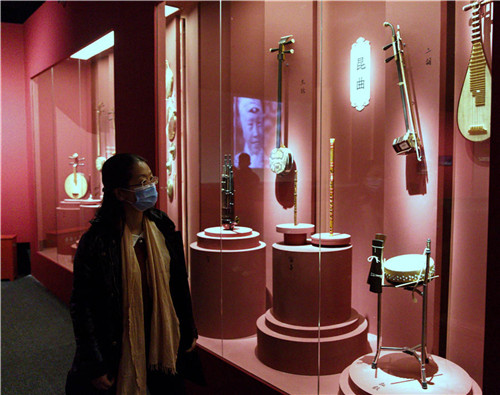
[Photo by Jiang Dong/China Daily]
She says she'd long dreamed of studying at the National Academy of Chinese Theater Arts, but it was her first time engaging in advanced learning because of her busy schedule with the opera company.
Over the one-month course, 21 representatives of regional opera styles from around the country lived and studied in Beijing. They attended lectures given by 40 teachers from the academy, and eight theater performances and three seminars with the theater crew.
"We're amateurs in terms of traditional-opera theories. So, I found the classes very enlightening," Li says.
"This is a valuable opportunity to gain knowledge and accomplish the mission of inheriting regional styles, especially for those of us striving to pass Chinese operas on to the younger generation."

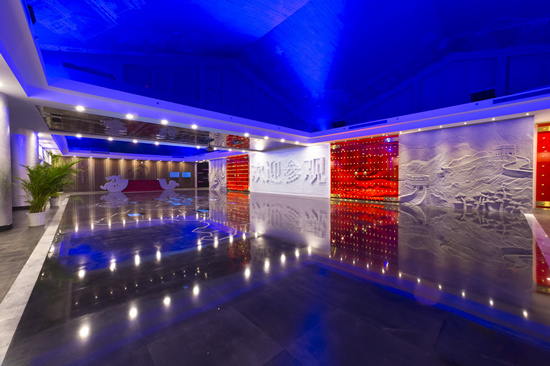 Responsibilities of the SOCAAC
Responsibilities of the SOCAAC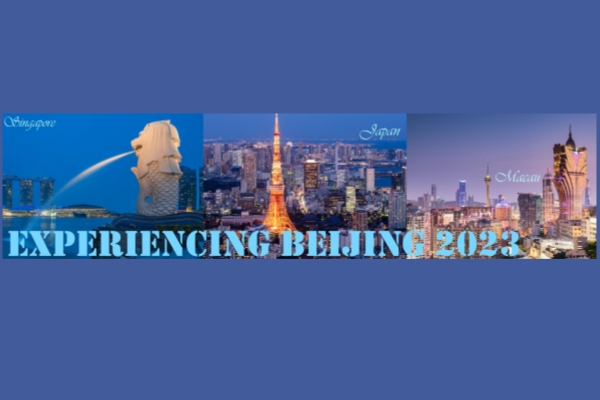 Experiencing Beijing 2023
Experiencing Beijing 2023